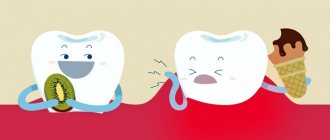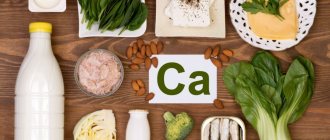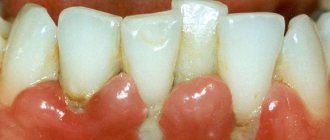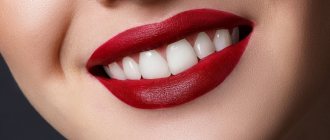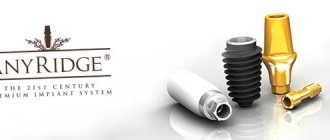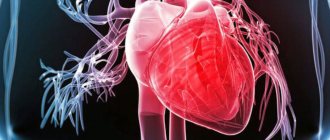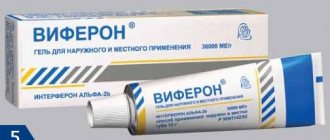The strength of teeth and the aesthetics of a smile are one of the key indicators indicating a person’s health and lifestyle. Today, a beautiful smile is an integral attribute of a person’s attractiveness, part of his successful image. It attracts the attention of others, forms the first impression of the interlocutor and gives positive emotions.
Thanks to proper nutrition, teeth should receive all the necessary micro and macroelements for healthy growth, improved aesthetics and support of basic function. This does not mean that you need to eat only the best expensive food - it is important to provide a balanced diet that allows your teeth to receive all the necessary nutrients.
Useful products containing micro- and macroelements
Thanks to a well-formulated diet, teeth receive from food the elements necessary for aesthetics and health. To try to balance your diet yourself, it is important to understand which elements are most suitable for maintaining the basic functions of a person's teeth.
It is not at all necessary to eat only high-quality food purchased in expensive stores. It is enough to properly balance the diet so that the dental tissues receive everything they need.
The daily diet requires the presence of necessary vitamins, micro- and macroelements, without which dental health will be undermined. Experts advise following the daily norm, which will allow you to keep your teeth healthy and seek help from dentists less often.
Calcium
An element that everyone knows about. It is considered the main component of dental tissue. Lack of it in the diet leads to rapid tooth decay. The absence or insufficient amount of calcium in food leads to the destruction of enamel, a decrease in the resistance of teeth to various influences, and leads to the formation of caries and gum pathologies.
To get the necessary element, it is recommended to consume the following products:
- legumes (beans, beans);
- eggs;
- hard cheeses;
- almond;
- sesame;
- raisin;
- black bread;
- dairy products (cottage cheese, milk, cheese curd);
- White cabbage.
For adults, the daily norm is 800 g per day. Children and pregnant women need larger dosages. Their daily norm exceeds 1200–1800 g of calcium.
Phosphorus
This microelement is a connecting link with which it is possible to correctly distribute calcium particles obtained from food. Strengthens enamel and hard tooth tissues. Natural phosphorus is found in large quantities in potatoes, legumes, cheese, poultry, beef, fish, buckwheat, rice and eggs.
The daily intake of phosphorus for an adult is 1500–1800 g.
Fluorine
Foods that are good for teeth should include sea fish, pork, buckwheat, walnuts and poultry. They contain a large amount of natural fluoride, which protects teeth from negative external influences.
Lack of fluoride leads to the formation of caries and periodontal disease.
Every day a person should receive at least 7–10 g of fluoride from healthy foods. If this is not ensured, pathogenic microorganisms that enter with food, air and drink destroy our teeth.
Iron
An important element in the body's hematopoietic system is iron. It is obtained from peas, mushrooms, spinach, apples, walnuts, beef liver or seaweed. It ensures normal blood supply to the gums and nearby tissues around the tooth. A lack of iron quickly leads to gum damage - periodontal disease.
The daily dose of the element ranges from 10 to 18 g. In the absence of the element entering the body, pathologies develop in a short time and quickly affect the gums.
| Microelement | Products containing |
| Calcium | Milk, cottage cheese, eggshells, beans, beans, sesame seeds, almonds, white cabbage, black bread. |
| Phosphorus | Potatoes, legumes, cheese, poultry, eggs, beef, fish, buckwheat, rice. |
| Fluorine | Pork, walnuts, poultry, sea fish. |
| Iron | Peas, egg yolk, spinach, apples, walnuts, beef liver, mushrooms, seaweed. |
Knowing which foods contain useful microelements, you can create a competent diet to get everything you need for healthy teeth.
Carbonated drinks
When we talk about enamel, we must remember such a concept as “pilicule”. This is a bacterial protective film that saliva forms on the surface of the tooth. Over time, it becomes dirty, we clean it with a toothbrush, and then it forms again. Firstly, carbonated drinks contain harmful sugar. It feeds microflora that destroys enamel. Secondly, they contain acids that also destroy the pilicule. For the sake of experiment, just take just one sip, and you will feel that your tongue is not sliding so smoothly over the surface of the tooth.
Article on the topic From candies to oranges. 11 foods that harm your teeth
Top 8 healthy foods for teeth
A properly selected diet is the key to excellent health. This also applies to teeth. Products for teeth are a fairly extensive list. They contain important components that are involved in the formation of teeth and their strength, despite external influences.
There are a number of foods that are extremely harmful to teeth. Not everyone knows about their destructive effects.
From the point of view of doctors, healthy foods are a list of foods that:
- Strengthens the maxillofacial bones.
- It has a disinfecting effect and inhibits microflora inside the oral cavity.
- It has a massage effect on the gums and improves blood flow in them.
- Prevents the formation of tartar, removing even small plaque.
If the selected product meets one or more criteria, it is considered beneficial for the oral cavity.
You don’t have to worry about dental health if a person’s food is rich in microelements and vitamins. They ensure normal blood supply and protect the enamel from external influences of harmful substances and pathogenic microorganisms.
To avoid caries and diseases of the jaw system, it is important to regularly eat the following foods:
- Buckwheat and millet. They are responsible for the calcium content and its easy absorption in the body.
- Nuts and seaweed. They contain a large amount of iron, which helps absorb calcium and distribute it in sufficient quantities throughout the body.
- Wheat bran and pumpkin seeds. They contain a large amount of vitamins and microelements and help strengthen local immunity.
- Vegetables. Fresh vegetables and fruits are full of useful components, which must be supplied to the body in sufficient quantities.
- Dairy products. They are a carrier of calcium, without which dental health is impossible.
- Sea fish. A storehouse of vitamins and microelements, without which it is not possible to keep teeth healthy.
- Poultry and pork. They contain healthy fats and vitamins and strengthen teeth.
- Legumes. You can’t refuse to eat beans, beans or peas; they are rich in multivitamins that strengthen tooth enamel.
Products for strengthening teeth are varied and useful. Creating a delicious and satisfying menu will not be a problem.
NUTS and SEEDS
Nuts and seeds contain substances beneficial for teeth in particularly concentrated quantities, and therefore it is extremely important to eat them regularly.
It will be good if you eat not the same type of nut always, but different varieties of seeds and nuts. Introduce walnuts and pine nuts, hazelnuts and Brazil nuts, sesame seeds, sunflower seeds, and flax into your diet. This is important because the composition of nutrients in each nut is different, and therefore the effect is different for everyone. For example, pine nuts help the development of dental bone tissue.
At the same time, remember that cracking nuts with your teeth is a procedure that is traumatic for the tooth, so it is better to avoid it. For the same reason, it is harmful to crack seeds.
Top 8 healthy foods for gums
Bleeding, weak and pathologically altered gums will not be able to support healthy teeth. That is why, first of all, you should select useful substances for healthy gums, and then strengthen your teeth.
In numerous illustrations showing healthy foods for teeth in pictures , you can see what foods should be included in the diet to maintain healthy gums:
- Pumpkin, carrots, and apples, due to their structure and chemical composition, ideally keep gums in order.
- Dairy products strengthen the circulatory system.
- Leafy vegetables contain a large amount of vitamins.
- Sea fish is full of multivitamins and healthy fats.
- Garden and forest berries are a real chest of vitamins.
Eating these foods daily will lead to healthy teeth. They are oversaturated with vitamin complexes and other useful components, adjust metabolic processes in tissues and clean teeth from plaque. As a result, the gums become strong and the teeth become healthy.
Clinical researches
ASEPTA toothpastes are clinically proven effective. For example, it was confirmed that regular use of professional toothpaste ASEPTA COFFEE AND TOBACCO for a month improved the hydration of the mucous membrane by 3.3 times, the remineralizing efficiency increased by 3.9 times, at the same time, the cleansing effect had increasing dynamics and reached 60 .5% at 4 weeks of use.
Sources:
- Clinical and laboratory assessment of the influence of domestic therapeutic and prophylactic toothpaste based on plant extracts on the condition of the oral cavity in patients with simple marginal gingivitis. Doctor of Medical Sciences, Professor Elovikova T.M.1, Candidate of Chemical Sciences, Associate Professor Ermishina E.Yu. 2, Doctor of Technical Sciences Associate Professor Belokonova N.A. 2 Department of Therapeutic Dentistry USMU1, Department of General Chemistry USMU2
- Report on determining/confirming the preventive properties of toothpaste “ASEPTA PLUS” COFFEE and TOBACCO Author: doctor-researcher A.A. Leontyev, head Department of Preventive Dentistry, Doctor of Medical Sciences, Professor S.B. Ulitovsky. First St. Petersburg State Medical University named after. acad. I.P. Pavlova, Department of Preventive Dentistry
- Report on determining/confirming the preventive properties of toothpaste “ASEPTA PLUS” GENTLE WHITENING” Author: doctor-researcher A.A. Leontyev, head Department of Preventive Dentistry, Doctor of Medical Sciences, Professor S.B. Ulitovsky First St. Petersburg State Medical University named after. acad. I.P. Pavlova, Department of Preventive Dentistry
Top 8 harmful foods
Lists of healthy food ingredients have been studied for a long time and represent a wide range. But there are also components harmful to teeth that quickly destroy enamel and contribute to the loss of healthy teeth due to weak gums.
These products primarily include:
- Sugar and sweets, except honey. They disrupt the acid-base balance in the mouth, contribute to pathological processes and quickly destroy enamel.
- Caffeine. The beneficial components are washed out and the body becomes dehydrated.
- Roasted seeds are not beneficial when brushing your teeth. They mechanically damage the enamel.
- Pieces of dried fruit , if you do not brush your teeth immediately after eating, get stuck in the space between the teeth and disrupt the acidity.
- Sugary drinks provoke inflammatory processes.
- Temperature changes and eating hot and cold food at the same time lead to rapid deterioration of teeth.
Food that is too hard and too soft will not be beneficial. They help reduce the strength of enamel and gums. This greatly impacts your overall oral health.
Mouthwash
Mouth rinse removes accumulated food deposits. It is recommended to use it after every meal. The composition of the mouthwash is very soft, it does not injure the teeth and gums at all and serves as an excellent prevention of dental diseases. Mouthwash should be used with caution after tooth extraction, or it is better to avoid it altogether for several days.
An additional advantage of mouthwash is its ability to give fresh breath thanks to the components it contains. After using the rinse, refrain from eating and various drinks for a short time so as not to “interrupt” the therapeutic effect.
Adviсe
Experts note that the effects of even the most harmful substances and products can be neutralized. It is enough just to follow the general recommendations for dental care. For example, carry out hygienic brushing or rinsing after every meal, brush your teeth twice a day according to the rules outlined by dentists, and do not forget about visiting a professional office, even if nothing hurts.
A well-planned diet and timely prevention of oral problems will help keep your teeth healthy and beautiful. As for products for children, the list is practically unchanged. It is important to observe the quantitative composition and take vitamins if they are lacking in the food the child receives. Preventive examinations are also necessary every six months to prevent problems in time.
How to keep your teeth healthy until old age? The key to success is consistency
It is not difficult to achieve success in maintaining your health, provided that you deal with this issue not from time to time, but on an ongoing basis. One-time measures are practically useless here, and if you make the rules of care your regular habit, success is guaranteed.
- Rule number one is brushing your teeth daily. At the same time, the task becomes somewhat more complicated - the procedure should last at least three minutes, and its goal should not be a dazzling shine, but a thorough cleaning of the interdental space and the most inaccessible places where food debris accumulates.
- Taking care of your teeth after eating is just as important as washing your face in the morning. It is important to choose the right toothpaste. Rinsing with clean water or a weak saline solution will help completely remove food particles and make your mouth cleaner.
- Changing a toothbrush is not only a matter of cleaning quality, but also of your personal hygiene. In a humid environment, many bacteria accumulate inside the bristles, which “like” to live in the oral cavity. Only replacing the brush will protect you from their intervention and at the same time qualitatively improve the cleaning process due to the good stiffness of the bristles.
- A competent approach to choosing a brush. The priority here is for models of medium hardness, which effectively clean the teeth and do not injure the gum tissue. A bias towards excess hardness or softness can cause bleeding of the mucous membrane or make cleaning practically useless.
- An electric brush is a minimum of risk, maximum of convenience and excellent quality of the process - your smile will captivate others with its impeccable appearance, and visits to the dentist will become only preventative.
- Chewing gum: when image is nothing, and the desire to maintain healthy teeth is everything. If you don’t have a toothbrush at hand and you’ve just had a snack, use chewing gum, which will easily cleanse your mouth of food debris and restore freshness to your breath.
- Dental floss. Simple, fast, safe and very effective when it comes to removing coarse food residues that cause significant inconvenience.
- Rinsing is the best way to prevent or slow down the development of oral inflammation and freshen your breath. Choose the appropriate antibacterial composition and remember to use it with the recommended frequency to experience the pleasant effect of freshness.
- Using fluoride toothpaste, especially recommended for smokers. If you are not yet able to give up this habit, make sure that it causes minimal harm to your teeth. In the ASEPTA line this is the ASEPTA PLUS Coffee and Tobacco paste. The chemical composition is selected in such a way as to strengthen tooth enamel and improve its appearance, while promoting its mineralization and freshening breath.
- Changing toothpaste is not just an opportunity to test the effectiveness of different dental products, but also the best chance to cope with microbes that quickly get used to the composition of the paste and do not respond to its action. By giving preference to ASEPTA pastes, you will provide your teeth and gums with professional care at home, which will have the most positive effect on their health.
And, of course, visit the dentist at least once every six months. Only in this case will it be possible to recognize and eliminate a serious disease in time, preserving the integrity of the dentition and avoiding long, painful and expensive treatment.
The effect of vitamin deficiency on the condition of teeth and gums
Vitamin deficiency caused by diets or unbalanced nutrition significantly worsens the condition of the oral cavity. With a lack of vitamin A, the secretion of saliva is impaired, which can provoke inflammation of the gums due to weakening of local immunity and deterioration of the mucous membranes.
Vitamin C deficiency affects the condition of the gums even more. It provokes their bleeding and can cause tooth mobility associated with impaired collagen synthesis. A lack of vitamin D leads to thinning of bone tissue, because this microelement takes part in the absorption of phosphorus and calcium, the violation of which causes deterioration in the condition of teeth.
Vitamin E deficiency seriously affects the condition of the oral mucosa, causing a decrease in the elasticity of gum tissue and the strength of connective tissue, which also leads to loosening of teeth. A low content of PP in the body provokes increased sensitivity of teeth, inflammation on the surface of the tongue, stomatitis, and the formation of cracks on the lips and the inner surface of the cheeks.
Jam and berries with small seeds
Seeds from raspberries, strawberries, blackberries and other berries can get stuck between teeth and in fissures (small grooves and depressions on the chewing surface of the teeth). If they are not removed quickly and correctly, this will inevitably lead to unpleasant consequences.
Treat without a drill. What procedures have dentists refused? More details

